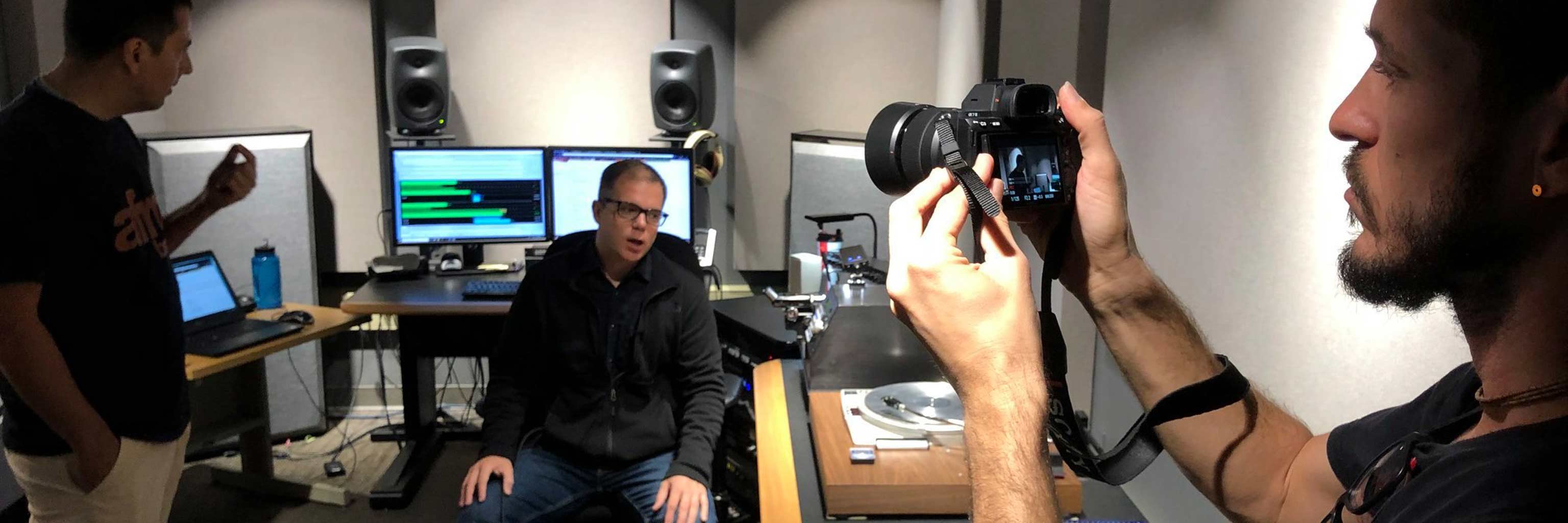The following Indiana University resources maintain rich and practical connections to the Department of Folklore and Ethnomusicology.
Partners & Affiliations
American Folklore Society
Founded in 1888, American Folklore Society is a professional association that supports folklorists and the field of folklore studies, representing more than 1500 members, including faculty in universities, arts administrators, museum curators, directors of non-profits, librarians, freelance researchers, cultural practitioners working in communities across the country, and many others who work to advance understanding of folklore and expressive cultural traditions in the US and throughout the world.
AFS works to keep folklorists connected throughout the year, hosting the largest single gathering of folklorists in the world with its annual meeting, fostering 30+ special-interest groups, and providing a portal to the news in field at large. AFS publishes numerous journals and publications, including the Journal of American Folklore, one of the oldest and most respected folklore journals in the world, advocates for the field, and has taken the lead in major initiatives and projects with national and international institutional partners and support from the National Endowment of the Arts, National Endowment for the Humanities, Ford Foundation, Teagle Foundation, and the Henry Luce Foundation, among many others.
Archives of African American Music and Culture
The Archives of African American Music and Culture (AAAMC) contains materials covering a range of African American musical idioms and cultural expressions, primarily from the post-World War II era. Its collections highlight popular, religious, and classical music, with genres ranging from blues and gospel to R&B and contemporary hip hop. The AAAMC also houses extensive materials related to the documentation of black radio.
Visit the Archives of African American Music and Culture website
Archives of Traditional Music
An audiovisual archive that documents music and culture from all over the world, the Archives of Traditional Music contains over 100,000 recordings. With more than 2,700 field collections, it is one of the largest university-based ethnographic sound archives in the United States. Its holdings cover a wide range of cultural and geographical areas, vocal and instrumental music, linguistic materials, folktales, interviews, and oral history, as well as videotapes, photographs, and manuscripts.
Society for Ethnomusicology
Founded in 1955, the Society for Ethnomusicology is a global, interdisciplinary network of individuals and institutions engaged in the study of music across all cultural contexts and historical periods. It publishes the Ethnomusicology journal, holds an annual meeting with a wide variety of scholarly presentations, discussions, films, workshops, and concerts, and offers online and other resources to members and the general public.
Traditional Arts Indiana (TAI)
A partnership between Indiana University and the Indiana Arts Commission. As Indiana’s statewide folk and traditional arts research and programming organization, it aims to document, promote and present Indiana’s traditional arts and artists.
Diverse Environmentalisms Research Team
A research and public programs team based in the Department of Folklore and Ethnomusicology. The Diverse Environmentalisms Research Team – or, DERT – brings attention to the ways local and indigenous groups are addressing climate change through a collaboration of folklorists and ethnomusicologists conducting research on local epistemologies and indigenous knowledges. DERT focuses its work on expressive culture and traditional practices as they inspire and ground environmental activism, and drawing on the emerging fields of ecomusicology and ecopoetics. DERT integrates this folkloristic and ethnomusicological research within the growing field of environmental humanities through research, curriculum design, and public education. And, DERT generates new strategies for better incorporating local and indigenous groups—and their knowledges and practices—into global conversations and activities focused on meeting the challenges of a changing environment.
Folklore Archives
Archives containing an extensive holding of documents and collections, mostly in paper formats, centered on traditional expressive forms and belief systems, worldwide in scope but with an emphasis on the U.S. Midwest and the state of Indiana.



 The College of Arts
The College of Arts